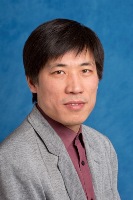
Junwang (John) Tang
Professor of Materials Chemistry and Enginering and FRSC
University College London, UK,
UNITED KINGDOM
Biography
Dr Junwang Tang is the Director of UCL Materials Hub, Professor of Chemistry and Materials Engineering in the Department of Chemical Engineering, and a Fellow of the RSC. He received his PhD in Physical Chemistry in 2001. After that, he took a JSPS fellow in Japan and senior researcher in Imperial College London. Later, he joined the Department of Chemical Engineering at University College London to take a permanent faculty position. He currently leads a research team including postdoctoral researchers, academic visitors and research students with financial support from UK EPSRC, Leverhulme, Royal Society, Royal Academy of Engineering, Newton Fund, EU PF7, Qatar and so on. His research interests encompass structure-controlled nanomaterials synthesis by a flow system powered by microwave irradiation, solar H2 synthesis from water, CO2 conversion to a renewable fuel, methane conversion, ammonia synthesis and photocatalytic environmental purification. Such studies are undertaken in parallel with the mechanistic understanding and device optimisation to address the renewable energy supply and environmental purification. His research has led to ~110 journal papers with >7000 citations, 11 patents and many invited lectures in the international conference. He is the Editor-in-Chief of the Journal of Advanced Chemical Engineering, an Associate Editor of Asia-Pacific Journal of Chemical Engineering, the guest Editor-in-Chief of the International Journal of Photoenergy, 2012 and Associate Editor of Chin J. Catalysis apart from sitting on the editorial board of other international journals.
Research Interest
structure-controlled nanomaterials synthesis by a flow system powered by microwave irradiation, solar H2 synthesis from water, CO2 conversion to a renewable fuel, methane conversion, ammonia synthesis and photocatalytic environmental purification. Such studies are undertaken in parallel with the mechanistic understanding and device optimisation to address the renewable energy supply and environmental purification

